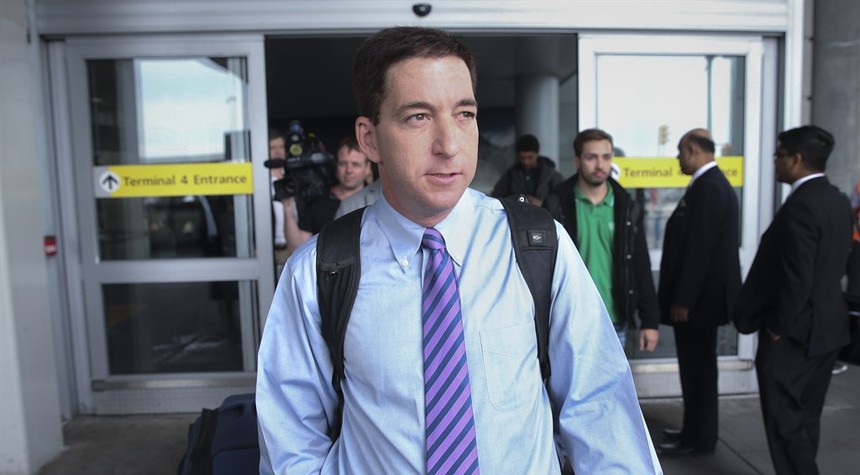Steve Bannon has called the “deconstruction of the administrative state.” In other words, the wresting of power from anti-democratic forces (often called the “Deep State“) that have seized unwarranted control over the state, the media, and most institutions of note.
https://pjmedia.com/columns/benbartee/2023/03/26/watch-glenn-greenwald-expertly-charts-the-populist-long-game-n1681647
WATCH: Glenn Greenwald Expertly Charts the Populist Long Game

Renowned journalist Glenn Greenwald recently joined Russell Brand for an appearance on the latter’s show. Brand prompted Greenwald with a question about whether what we need is a “galvanization of a new populist force” in the context of the grassroots left and right joining together, however temporarily, in the cause of defeating the technocratic, increasingly authoritarian, multinational corporate state.
Greenwald gave what I consider an insightful answer.
“That’s what I regard as my work… unifying of people who are being told constantly that they are supposed to hate each other across ideological, cultural and religious, and demographic divides that, instead… the reality is you have so much more in common than you do differences, namely your lives are being controlled and exploited and abused by this very small segment of elite culture and the only thing that matters is overthrowing their hegemony and then, once a fairer system has been proposed, you can start kind of grappling with those differences,” he said.
This is — again, in my view — an excellent political prescription. All of the current right vs. left stuff, especially the culture war piece, is real but secondary to the usurpation of the state by nefarious, off-shore forces (embodied by the World Economic Forum, for example).
For our VIPs: Tucker Carlson, Russell Brand, and the Great Political Realignment
The shared priority of everyone with an interest in a livable future should be a version of what Steve Bannon has called the “deconstruction of the administrative state.” In other words, the wresting of power from anti-democratic forces (often called the “Deep State“) that have seized unwarranted control over the state, the media, and most institutions of note.
The culture war, while real and worth hashing out, can only work itself out naturally in the context of a functional state with the right to free expression enshrined and cherished in law. That the First Amendment came first is no accident; free and open dialogue is the fount from which all progress flows. The sacred right to free speech must be restored before any peaceable resolution to the culture war can be reached. As of now, one-half of the participants (roughly) who don’t believe that, for example, trans-identified men should be permitted to beat women unconscious in combat sports for the sake of “equity” are essentially blacklisted from public discourse. This is no recipe for resolution.
Similarly, economic debates over regulation and wealth distribution only make sense if the state is functional and responsive to the public interest. When the state is unaccountable, regulations become weapons of profit and social control.
This is not radical populism, and it shouldn’t be construed as such. The American Revolutionaries started a war over the very issue of a domineering foreign power with interests totally disconnected from those of the colonists themselves, who, aside from the landed gentry that supplied the intellectual heft to the cause, were subsistence farmers. The revolutionaries, of course, had internal debates, especially in the aftermath of the war, over economic policy, etc., but those disagreements were secondary to the prime directive of freeing the colonies from the brutal yolk of the British crown.
Comments